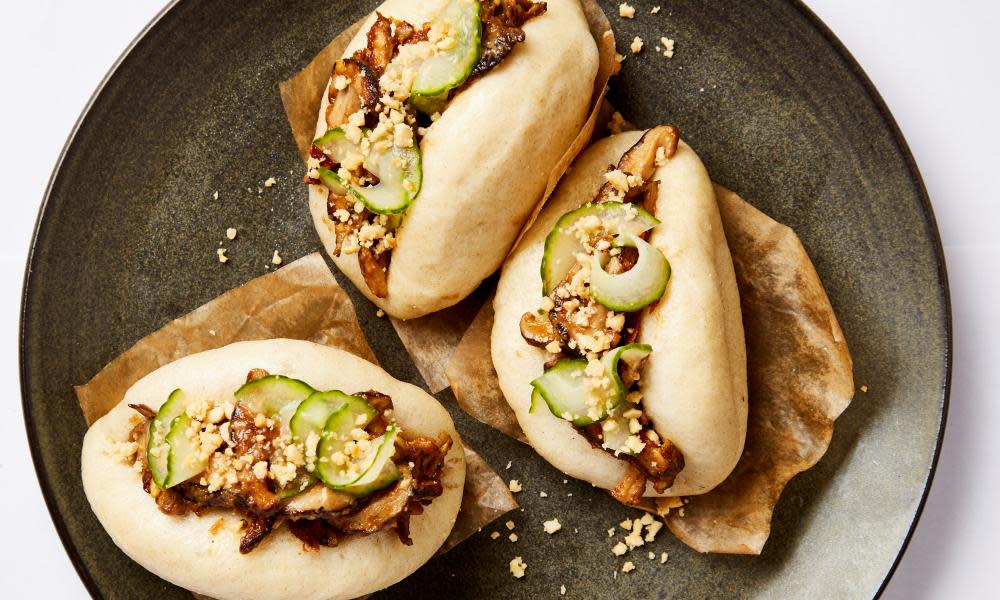Take a bao: Chinese restaurants are always there for us. Let's be here for them

Every Australian, no matter the age or the place, can dig through their memory bank for a time when a Chinese restaurant was there for them.
Perhaps they were there for you as a penny-pinched student, banging down plates of plump pork and chive dumplings that sustained you from morning lectures to evening tutorials for less than your last tenner.
Perhaps they were there for you in your fancy-free 20s, staying stoic as you and your friends, rowdy and oversauced on BYO wine, obliviously dropped noodles and menaced your fellow diners.
Perhaps they were there for you growing up in regional Australia, where meat and two veg ruled school nights but the weekend was punctuated by family all ins at the local Chinese diner – a parade of glossy, sweet and fried delights, both a treasured tradition and a window to the cosmopolitan capitals.
Well folks, Australia’s most hearty and hardy restaurants now need you to be here for them. The fallout from the novel coronavirus outbreak has hit the local industry hard. Reports abound of up to 80% falls in patronage, with usually bustling venues now battling to put bums on seats. Chinatown institutions are shuttering after 30 years of trade. Shifts are being cut, staff are being let go and owners are scraping their savings to make rent.
Related: Coronavirus fallout could leave Australian tourism and retail sectors in the doldrums
It’s a tricky melange of factors that have gotten us here – tourists and homesick international students make up a significant portion of these restaurants’ clientele, and the government’s extended travel ban has shut them out completely. And while xenophobia has no doubt has played a part in keeping many away, anyone with a connection to the Chinese migrant community knows that it’s they who are more fearful than anyone, thanks to memories of SARS, an inherent distrust of the CCP’s official reporting, and the misinformation hellscape that is WeChat. Moreover, the overt and covert racism on streets, social media and sections of the established media have communicated loud and clear that if the virus were to spread here, the community would face unprecedented hatred and blame.
It’s also highlighted the razor’s edge that these hardworking restaurateurs live and die on. We love our cheap Chinese feeds (and western society’s refusal to pay more for ethnic food is another conversation entirely) but they mean the slimmest of profit margins and the most precarious of cash flows for owners, so that a few weeks or months of low patronage can spell permanent ruin.
This all speaks to a broader malaise that Chinese Australians are experiencing right now, one that simmers with every piece of coronavirus coverage myopically focussed on the economic impact of the epidemic – cumulatively painting a society that cares more about the bottom line of our powerful universities and the supply chain of our iPhones than the sadness and anxiety of students barred from their friends and homes and families split up by the arbitrary rules of the travel ban.
It hasn’t gone unnoticed that weeks ago the world shed tears for koalas and forests, but the agonising death of hundreds, now thousands, of grandparents, mothers, fathers, siblings and health workers appear to be happening to a distant, alien population, who, for the misfortune of being born under authoritarian rule, or for eating differently to us, had it coming for them.
Related: Coronavirus economic impact: Australia could be among world's hardest hit nations
Anti-Chinese xenophobia has been an accepted part of the domestic discourse for some time now, whether they’re ruining universities, or the housing market, or stealing infant formula straight from the mouths of our babies. But now more than ever, parts of the Chinese Australian community are feeling abandoned in a time of crisis, and are wondering if Chinese people have ever been seen as anything more than cheap labour for cheap goods and cheap food, or a money printing machine for the tourism and education industries. They’re wondering – are we human to you?
If the answer is yes, then say it with your chest. And then your stomach. Eat out at a Chinese restaurant and help small business owners that have “had a go” more than just about anyone. By eating out you’re speaking out – telling a distressed community at a time when they need it most: I see you, and I’ll stand by you.
And you’ll be in good company. Everyone from celeb chef Dan Hong to Victorian Premier Dan Andrews and Senators Penny Wong and Simon Birmingham are putting the call out, with supporters organising get togethers and people sharing their favourite dishes on social media under hashtags like #DontDumpTheDumplings.
This is a movement that isn’t asking you to sacrifice a thing. Consider swapping your latte and toast for har gau and jasmine tea, enjoy the bounty of cut-price live seafood and take a food adventure out to Eastwood or Box Hill with your mates. There’s a 0% chance of catching coronavirus, and a 100% chance of a delicious time.

 Yahoo News
Yahoo News 
